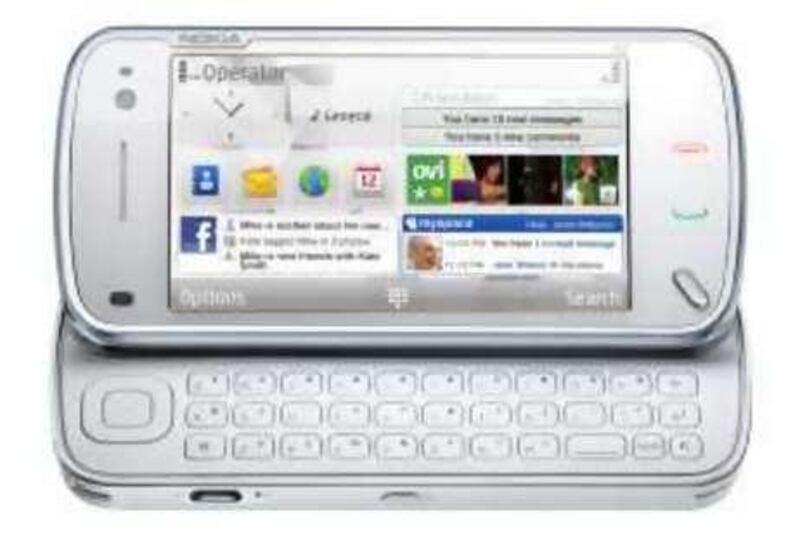BARCELONA // Nokia's chief executive envisions a future where the company competes as much with Google as it does with traditional handset makers, selling its internet-based services to users of rival devices. The Finnish company's chief executive, Olli-Pekka Kallasvuo, spoke to The National on the sidelines of Nokia World, a two-day global briefing event for partners, analysts and the media. He said it was simply "a question of evolution" that would determine when Nokia services, like maps and instant messaging, become available on competing handsets. "The mobile industry has been very good at capturing value from adjacent industries," he said. "We have become the biggest camera manufacturer, the biggest music player manufacturer, and this will continue. In online services, the mobile industry is again capturing value, adding mobility to the -internet." Mr Kallasvuo, who has been at Nokia for almost 30 years and was named chief executive in 2006, said a cultural transformation is underway at the company, known historically as a research and engineering powerhouse. "We need to become more like an internet company - but I'm not saying we want to become an internet company, because that would mean saying goodbye to what we are, and that's not the point," he said. "We need to combine the new and the old, and old is not a negative word here." In two keynote addresses today, Mr Kallasvuo and his colleague, Anssi Vanjoki, the executive vice president for markets at Nokia, laid out the company's ambitious strategy to redefine the internet as a platform centred around the mobile phone. By allowing users to share their location and movements with friends and create electronic "tags" attached to physical locations, Nokia hopes its phones will become the central devices of an interconnected world. "Instead of one internet, we will talk about billions of internets," Mr Kallasvuo said. But the company is not the only major player moving into the internet services business. Mobile network operators, keen to diversify their revenue streams, are also hoping to sell value-added services like music downloads and data storage to their customers. Internet giants like Microsoft and Google are looking increasingly to the mobile phone to power the next boom in online advertising and spending. "I look at the list of people who are active in our industry," Mr Kallasvuo said, "and I am saying to myself 'you can compete with some of them some of the time, but not all of them all the time'. The right partnering is obviously very important." Nokia has forged partnerships with network operators in Europe to resell its web services, branded as Ovi, to their customers. In the Middle East, it has partnered with the Cairo-based regional operator Orascom Telecom; Mr Kallasvuo said the company is looking to build more relationships with such networks. To emphasise the company's new direction, Nokia today launched its new flagship device, the N97, promising that it will be more closely integrated with the internet than anything else on the market. The N97 uses a full touch-screen interface, like the Apple iPhone, its hugely successful competitor. But the screen slides upwards to reveal a full keyboard, similar to that of Nokia's other high-end competitor, the BlackBerry. The company did not give specific details regarding when the device will be available in the Middle East. Many phones currently hitting the market, like the Sony Ericsson Xperia and the HTC G1, use a similar design. But Nokia hopes that what will truly differentiate the device is the way internet services, like mapping and social networks, will integrate into the phone. Users will be able to perform a "physical search" by pointing the camera phone at a nearby landmark. Using a combination of global positioning system location data and picture-matching technology, Nokia's point-and-find service will identify the landmark and provide information from the internet. The N97 is also designed as a primary storage device for personal media like music and films, coming with a 32 gigabyte hard drive, larger than anything currently available on the market. Nokia plans to release the new phone in the first half of next year, at an estimated price of ?550 (Dh2,560). tgara@thenational.ae
Latest Nokia takes on iPhone, BlackBerry
The company promises the device will be more closely integrated with the internet than anything else on the market.

Editor's picks
More from the national




